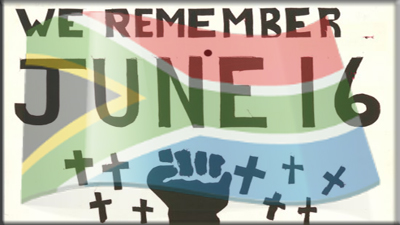On the anniversary of the 1976 Soweto student uprising, former students who marched alongside Hector Peterson and Tsietsi Mashinini are reuniting.
Omry Makgoale, Murphy Morobe and others are looking back at that fateful day and how far the country has come.
The Soweto uprising came a decade after a relative calm in the resistance movement in the wake of massive government repression in the 1960s.
Reuniting to reminisce on the 39th anniversary of the Soweto student uprising, this group meets annually to celebrate their role in the protests and 39-years later they fear that what they fought for has not been totally achieved.
Chairperson of 1976 alumni 21, Omry Makgoale says, “We have achieved what we fought for because we fought for high quality education for all South Africans and at the moment I can’t say we have quality education at our schools. Our education system is very inferior at the moment.”
The June 16, 1976 uprising began in Soweto and then spread countrywide. The event is profoundly known to have changed the socio-political landscape in South Africa.
It was all triggered by protests against apartheid era policies, including Afrikaans as the medium of instruction in schools.
We were basically frustrated with this system and felt we can no longer accept it
This led to many students joining a wave of anti-Apartheid sentiment that day.
On their way they were met by heavily armed police who fired teargas and later live ammunition leading to the death Hector Peterson.
Images of the police brutality on the peacefully demonstrating students sparked an international outcry against South Africa.
Makgoale says, “The march was about many frustrations, first the bantu education system which we were unhappy about and secondly with the forceful introduction of Afrikaans as a medium of instruction, so we were basically frustrated with this system and felt we can no longer accept it and we marched against it because we noticed that our parents were still subdued and scared of the system after the ANC and PAC was banned in the 60’s.”
Almost four decades later, young people are facing a different struggle and the struggle of the 1970s no longer resonates with today’s youth.
Some of the young people the SABC spoke to said they are not interested in what happened on the day, while some acknowledge that the youth of 1970 sacrificed their lives in order for them to have the education.
– By Ntlantla Kgatlhane


